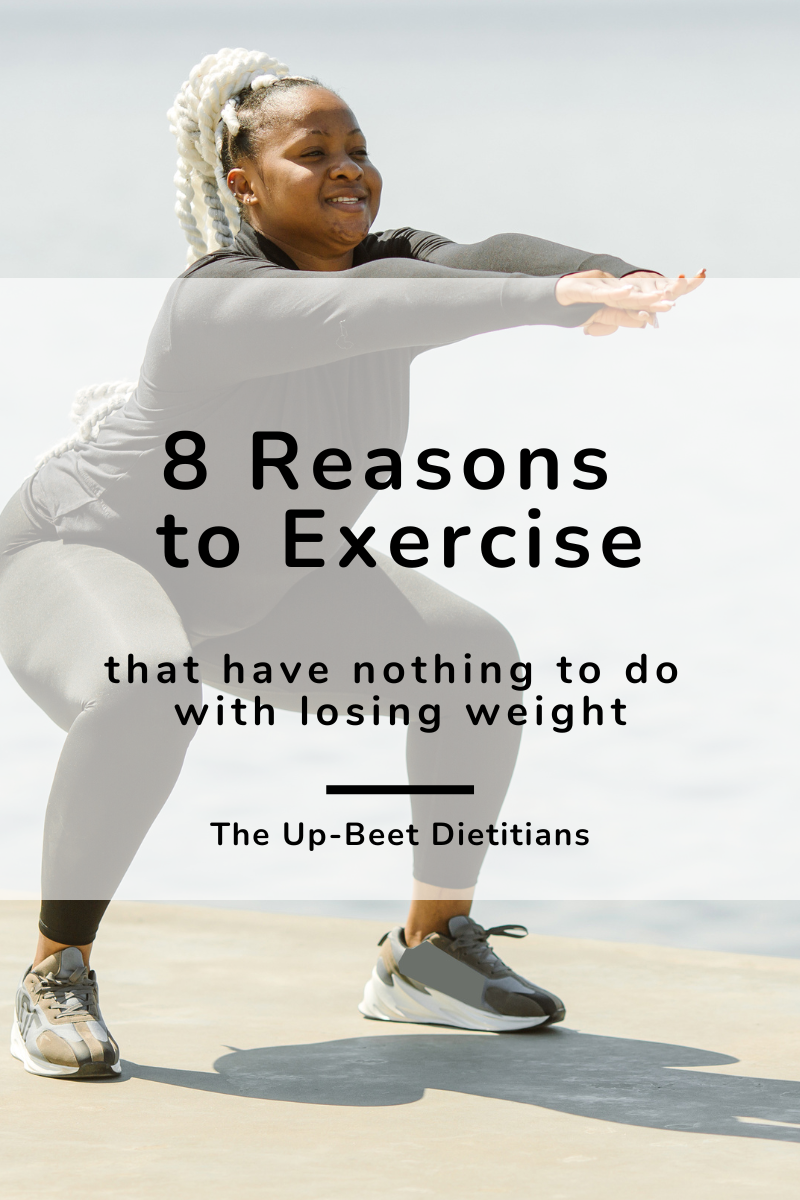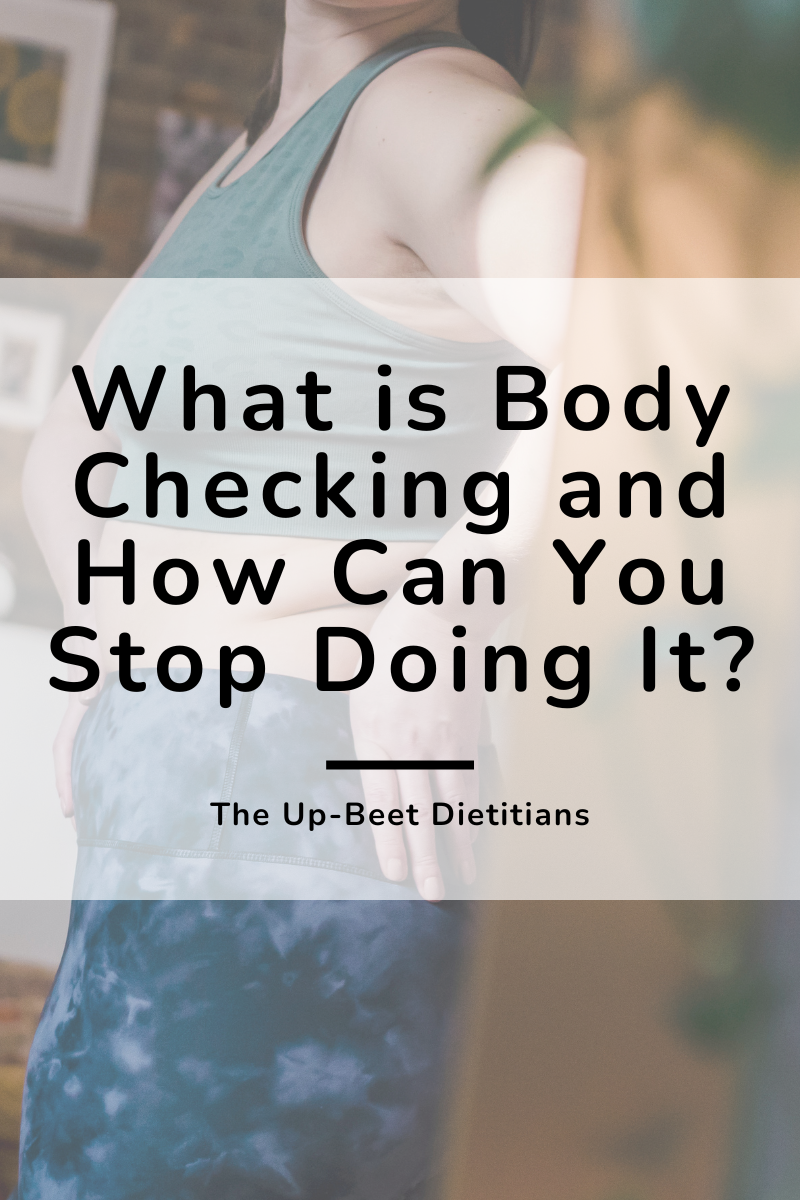8 Reasons to Exercise That Have Nothing to Do with Losing Weight
Written by: Hannah Thompson, RDN, LD, CPT
Intuitive exercise means finding joyful movement and exercising for reasons other than shrinking your body.
For a long time, we have been fed the concept that exercise is primarily a means of losing weight. We are often led to believe that if we don’t follow a strict exercise routine, we will never reach our weight goals and this means that we will never be healthy. And, according to diet culture, if we are unable to follow a strict routine, we should feel ashamed and guilty for not having enough “willpower”, even though the exercise routine was too strict to begin with.
Benefits of Exercise (that have nothing to do with your weight)
There are many benefits of movement that don’t include seeing the number on the scale go down. While weight loss may (or may not) be a side effect, your health will likely improve as a result in participating in more joyful exercise.
Improved mental health
Exercise can decrease symptoms of anxiety and depression, alleviate stress, and reduce symptoms of ADHD. Even if you’re not suffering from a mental health problem, regular physical activity can still improve your mood and mental well-being.
Better sleep
Exercise can help regulate your circadian rhythm, the bodies’ built-in alarm clock that controls when you feel tired and when you feel alert. Exercise can also increase sleep quality by reducing the amount of time it takes to fall asleep at night.
This relationship also goes both ways! Better sleep means more energy for joyful movement, which will continue to result in better sleep. A win win!
Boost in productivity and energy levels
Let’s get sciency-y for a second. Physical activity has been shown to stimulate the development of new mitochondria in your cells. This means that your body will be able to produce more ATP (your cell’s source of energy) over time. These changes can give more energy to your body and your brain!
Improved cognitive function and memory
Exercise has shown to increase the size of the area of the brain involved in memory and learning as well as boost blood flows to these cranial regions.
Benefits your immune system
Exercise may be able to help you keep from getting sick and help you feel better faster when you do catch an illness. Exercise can increase the circulation of immune cells in your body which helps your body better prepare for a future infection by detecting it earlier.
Increase muscle mass
Exercise, particularly resistance training, can lead to hypertrophy (muscle building) over time. Muscle mass is more metabolically active than adipose tissue (fat mass) which means that the more muscle mass we have, the more calories our body burns even at rest. Increased muscle mass can also reduce injury risk and improve your ability to do daily tasks.
Decreased risk for various chronic diseases
Exercise is beneficial for everyone and it can help reduce risk of chronic diseases such as type 2 diabetes, heart disease, and many types of cancer. Improvements in physical fitness levels (which, side note, is not defined by a number on the scale or the size of your body) can decrease the risk for certain diseases in various ways, including improvements in blood flow, more stable blood glucose levels, and stronger bones and muscles.
Build community
If you are interested in joining a gym or you enjoy exercise classes, this could be a great opportunity to make new friendships!
Even small amounts of exercise is better than nothing
Many of us don’t have the time to commit to extensive workouts most days, and that’s okay! Even 10-15 minute bouts of movement can lead to all of these benefits. As you build more stamina, strength, and endurance, perhaps you will be able to increase the duration and intensity of your movement.
Some individuals enjoy being “weekend warriors” and they hit those longer workouts on days off and sneak smaller bouts of movement in between. Just try to move your body in a joyful way that works for your lifestyle!
The Talk Test
You also do not need to be participating in high intensity exercise to see these benefits. Moderate levels of exercise are actually best for most people. You can self-assess the intensity of your exercise using something called the “talk test”. If you are able to talk, but not sing a song, during the exercise, that is a good sign that it is moderate intensity. If you are unable to talk or hold a conversation during the exercise because you are so out of breath, the movement is likely more high-intensity.
Bottom line
There are so many reasons to find joyful movement. Removing the correlation between exercise and weight loss will help you to intuitively move your body, allow for rest, and maintain your habits more consistently so that you can reap all of the physical and mental benefits of movement.
Want to learn more about Intuitive Eating and how to start your food freedom journey? Join our course to learn how!





